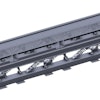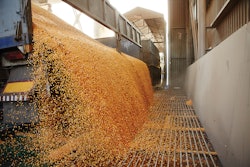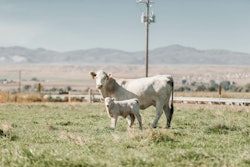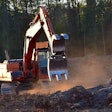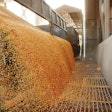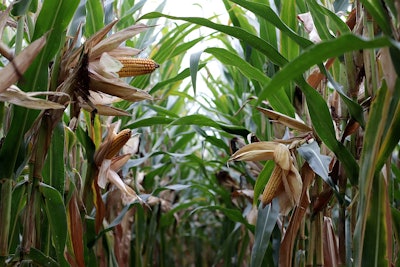
Navigator CO2Ventureshas canceled itsHeartland Greenway carbon capture pipelineciting the “unpredictable nature of the regulatory and government processes” of Iowa and South Dakota.
Announced in 2022, Navigator CO2had proposed to build a more than 1,300-mile pipeline system to transport captured carbon dioxide from ethanol plants and other facilities in five states to Illinois for underground sequestration or other commercial purposes. Most of the pipeline was planned for Iowa. Expected to be completed in 2025, the pipeline would have been able to transport and sequester up to 15 million metric tons per year.
The development of Navigator’s pipeline project has been challenging, said the company in a statement. Given the unpredictable nature of the regulatory and government processes involved, particularly in South Dakota and Iowa, the company has decided to cancel its pipeline project, said Matt Vining, CEO of Navigator CO2.
According to theIowa Capital Dispatch, in September, the company suffered a setback in South Dakota when the state’s Public Utilities Commissiondenied it a permit,部分原因是其route did not conform with county ordinances that restrict the placement of such pipelines.
Navigator then asked state utility regulators in Iowato suspend its permit processwhile it awaited a decision from Illinois regulators. Less than two weeks ago, it asked topull its permit applicationin Illinois.
"As good stewards of capital and responsible managers of people, we have made the difficult decision to cancel the Heartland Greenway project," said Vining. "We are disappointed that we will not be able to provide services to our customers and thank them for their continued support.”
In July 2022,POEThad signed a deal with Navigator to provide POET with carbon capture, utilization and storage (CCUS) services on Navigator’s Heartland Greenway system. The system would have phased in 18 of POET’s bioprocessing facilities across Iowa, Nebraska and South Dakota.
Two other carbon capture projects in the queue
There are two other carbon capture projects in the proposal stages:Summit Carbon SolutionsandWolf Carbon Solutions.
TheIowa Capital Dispatchnoted thatSummit Carbon Solutionsis nearing the end of its permit process in Iowa but has had setbacks in the Dakotas. It recently acknowledged that its project — if approved by state regulators — would not likely bein operation until 2026, more than a year after its initial estimate. Summit seeks eminent domain for land easements for about a quarter of its more than 680-mile route in Iowa.
Summit said itscarbon capture and storage projectwould have the capacity to capture and permanently store up to 12 million tons of carbon dioxide every year. The project is designed to span across Minnesota, Iowa, Nebraska, South Dakota and North Dakota, and will cut the carbon footprint ofaffiliated ethanol plantsin half.
Wolf Carbon Solutionshas said itwill not use eminent domainfor its comparatively short route in Iowa. About 90 miles of pipe would connect to two ethanol plants in eastern Iowa, and their carbon dioxide would be piped to Illinois.
Wolf Carbon Solutions and ADM signed a letter of intentpaving the pathway toward further decarbonization of ADM’s footprint with a commercial agreement which will allow for the capture, compression and transportation of carbon dioxide produced at ADM’s Clinton and Cedar Rapids, Iowa, facilities.
IRFA: Carbon capture is key to growing renewable fuels
The爱荷华州的可再生燃料协会(IRFA) expressed disappointment with Navigator's cancellation announcement.
“Over the last year, we have been disappointed with the amount of disinformation that has been spread among the public and the regulators across multiple states," said Monte Shaw, executive director of IRFA. "That does not happen by accident. Rather, it is being pushed by groups who oppose modern agriculture and whose stated mission is to destroy farming as we know it. While we respect Navigator’s decision, IRFA will continue to support multiple other CCS projects and we expect ultimate success.”
Carbon pipeline opponents have expressed concern about the safety of the pipelines carrying carbon dioxide, an asphyxiant, and whether the companies would fully restore any damage pipeline construction causes to farmland and underlying drainage systems.
Shaw said IRFA supports carbon capture sequestration (CCS) projects as the best way to align ethanol production with the increasing demand for low carbon fuels both at home and abroad.
"CCS is the essential key to unlocking the 100-billion-gallon sustainable aviation fuel (SAF) market for agriculture, in the long term," said Shaw. "If realized, the SAF market would trigger the largest rural economic boom since the introduction of corn hybrids. It is not an overstatement to say that decisions made over the next few months will likely place agriculture on one of two paths. One would lead to 1990s stagnation as corn production exceeds demand, and the other opens new market opportunities larger than anything we’ve ever seen before. IRFA will fight for a prosperous farming future."



